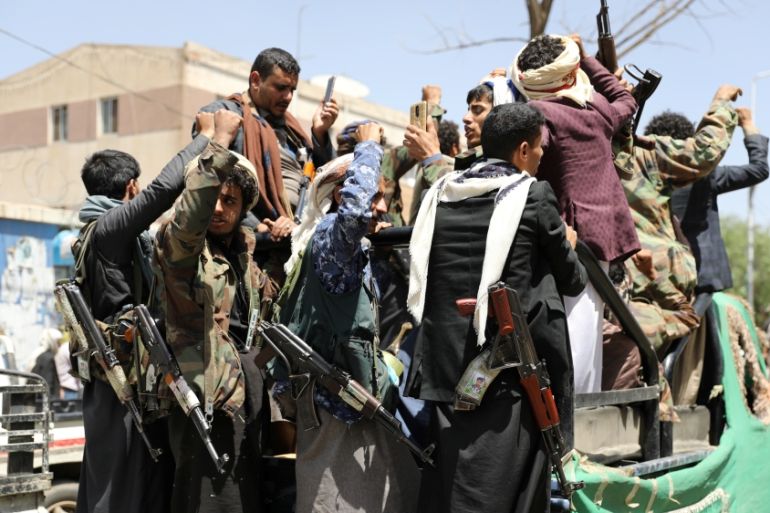Yemen truce expires amid fears of coronavirus disaster
Failed Yemen ceasefire is not extended as country struggles with multiple crises.

A two-week ceasefire in Yemen announced by a Saudi-led military coalition has expired without leading to a permanent truce, raising fears that the country’s war will grind on and shatter its already weakened ability to contain the coronavirus pandemic.
The latest Yemen peace push followed UN Secretary-General Antonio Guterres’s call last month for a global ceasefire so the world can focus on fighting COVID-19, which aid groups worry could cause a catastrophe in Yemen after five years of war. Yemen reported its first coronavirus case earlier this month.
Keep reading
list of 3 itemsYemen’s war rages under shadow of looming coronavirus threat
Saudi Arabia executes Yemeni man who attacked Spanish performers
But the Houthi rebels battling the Saudi-led coalition did not support the truce, and violence has continued in several provinces including Marib, a stronghold of the internationally-recognised government.
Yemen has been mired in conflict since the Houthi rebel group overthrew the government of President Abd-Rabbu Mansour Hadi from the capital Sanaa in late 2014. A Saudi-led military coalition in 2015 intervened in a bid to restore the government
‘Symbolic ceasefire’
Two diplomats and two other sources familiar with the matter had expected an extension of the ceasefire for at least another two weeks, if not until the end of the Muslim holy fasting month of Ramadan, Reuters news agency reported.
|
|
But since the Houthis continued their attacks, the coalition did not extend it, they said.
The Western-backed alliance has responded to recent Houthi advances with air raids.
“It was rather a symbolic ceasefire than an actual one, the coalition does not see the point of extending it,” one of the sources close to the discussions told Reuters.
“The Houthis could conduct an assault on Marib city very soon if there is no agreement, this would be another disastrous episode in the ground war after the battles for (the Red Sea port of) Hodeidah in 2018,” said a Saudi-based Western diplomat.
‘So much hardship’
Separately on Thursday, the International Committee of the Red Cross (ICRC) said in a report that half of Yemen’s health facilities were not functioning and that this week 500 cholera cases were reported in 24 hours in one hospital in the capital, Sanaa.
“Yemenis cope with so much hardship every day,” said Franz Rauchenstein, the head of the ICRC delegation in Sanaa.
“Ongoing fighting in parts of the country causes daily despair, seasonal infectious diseases claim thousands of lives each year and high inflation is affecting the price of food, medicine and other basic goods,” he said.
“Yemen’s hospitals are already under significant pressure, even without the threat of coronavirus,” said Avril Patterson, the ICRC health coordinator for Yemen.
“The beginning of Ramadan this year coincides with the onset of the rainy season and the associated seasonal increase in infectious diseases, including cholera, diphtheria and dengue,” she said.
Over the past two weeks, several parts of Yemen have been lashed by torrential rains, affecting thousands of people.